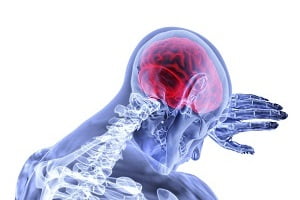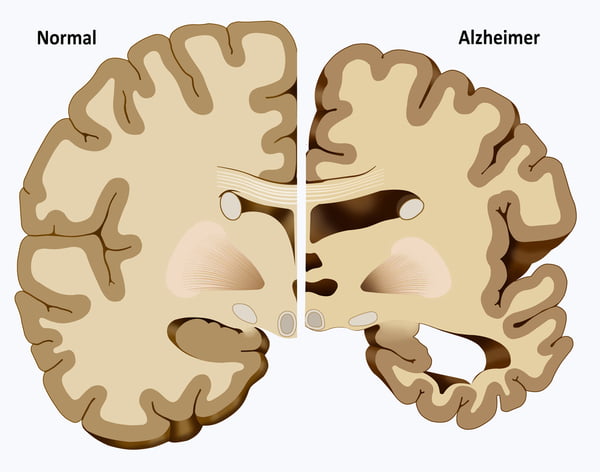Browsing: Brain and Neurological Conditions

Your brain constitutes the control mechanism of your body. It’s part of your nervous system, which also includes the spinal cord and a large network of nerves and neurons. The nervous system controls everything in your body.
When your brain is damaged or diseased, it can affect your memory, your sensation, your personality, and even your entire quality of life. Nervous system disorders (Nervous system diseases) include any conditions or disabilities or problems that affect your brain or nervous system and comprise brain diseases as well.
Brain and nervous system problems are quite common. These neurological disorders include Alzheimer’s disease, Parkinson’s disease, multiple sclerosis, epilepsy, stroke, depression, autism, etc.
This page provides quick access to a list of common diseases, syndromes, health conditions, and other topics of health importance related to your brain and nervous system. The list is organized alphabetically. Links are provided to respective disease ecosystems that serve as a comprehensive and ultimate guide about the disease or health condition. Keep reading!
Dementia is a general or broad term used to describe memory loss and the loss of problem-solving abilities, social skills,…
Intro: Service dogs play an essential role in the lives of their owners, providing necessary assistance and companionship. Service dogs…
Teenagers who are dealing with mental health problems are not alone. Depression is the most prevalent of the many mental…
Is It a Normal Headache or Migraine: How to Recognize the Difference?
Headache is very common and is an extremely uncomfortable experience. People experience pain in their head or neck region when they have headache. Migraine involves severe pain in head along with nausea and vomiting. It is much more critical than a headache. Sometimes, it becomes difficult to identify whether a person suffers from headache or migraine.
There are many complications associated with peripheral neuropathy such as gangrene and amputations, digestive issues, deformity of lower extremities, ulcers, loss of bladder control, etc. Peripheral nervous system has three types of nerves, i.e., motor nerves, autonomic nerves, and sensory nerves. Symptoms depend on the kind of nerve which is damaged or affected. Damage to sensory nerves affects sensation, and the patient also loses the sense of balance.
You spend around a third of your time sleeping if you’re like most people. And if you’re like the majority…
Digital health tech is now an integral part of the healthcare ecosystem. We consider it as an immaculate solution to…
Common Indications that You Might Have Alzheimer’s Disease
The signs and symptoms of Alzheimer’s develop progressively over a period of time. Anybody in his or her life can…
Medical care is usually provided by primary care physician. The goal of the treatment is to increase and maintain quality of life, daily activities, cognitive abilities, mood and behaviour and foster safe environment for patients.
Alzheimer’s is a neurodegenerative complex disease in which brain cells die and gets damaged and the connections between them are lost. Currently, there is no cure and no medications are available to treat it completely. Once a person starts showing symptoms of this disease such as memory loss and cognitive function disabilities.











